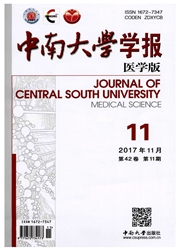

 中文摘要:
中文摘要:
华法林抵抗指少数患者需服用显著高于常规剂量华法林才能达到目标国际标准化比值(international normalized ratio,INR)治疗范围,甚至无法达到目标INR的现象。华法林抵抗可分为遗传性抵抗和获得性抵抗两类,或分为药代动力学抵抗和药效动力学抵抗两类。临床上确诊华法林抵抗后,应尽快找出抵抗原因,对因治疗。患者依从性差、遗传变异、服用导致华法林吸收减少或清除加快的药物、摄人富含维生素K的饮食等是导致华法林抵抗最常见的原因。教育患者用药知识、增加华法林剂量或换用其他抗凝药可有效避免华法林抵抗。
 英文摘要:
英文摘要:
Warfarin resistance is a phenomenon that patients need to take much higher than normally prescribed dosage of warfarin to maintain the target therapeutic international normalized ratio (INR) range, or even fail to reach the target INR. Warfarin resistance can be categorized in etiologic terms as hereditary vs acquired, or in pharmacologic terms as pharmacokinetic vs pharmacodynamic. Once warfarin resistance is diagnosed, the type of resistance should be determined as soon as possible so that treatment could be oriented toward the causes. Poor compliance, genetic mutations, concurrent medications that could decrease the absorption or increase the clearance of warfarin, and consumption of diet rich in vitamin K are the major reasons for warfarin resistance. Educating patients, increasing warfarin dosage and switching to other anti- coagulants would be effective for warfarin resistance.
 同期刊论文项目
同期刊论文项目
 同项目期刊论文
同项目期刊论文
 期刊信息
期刊信息
